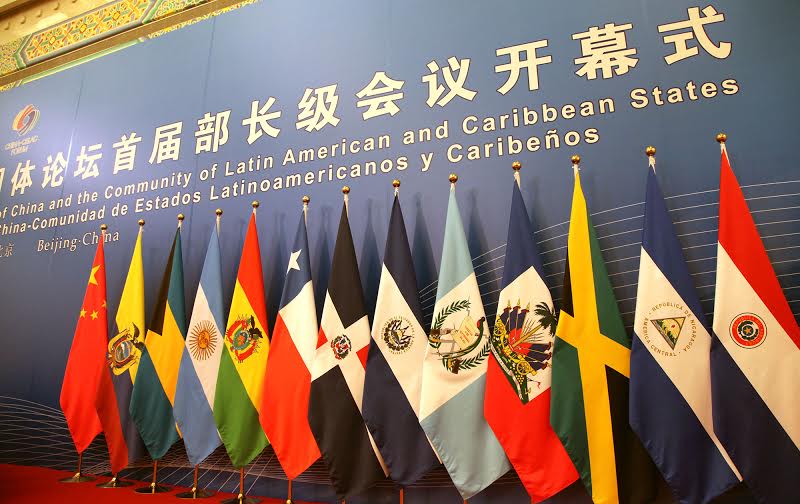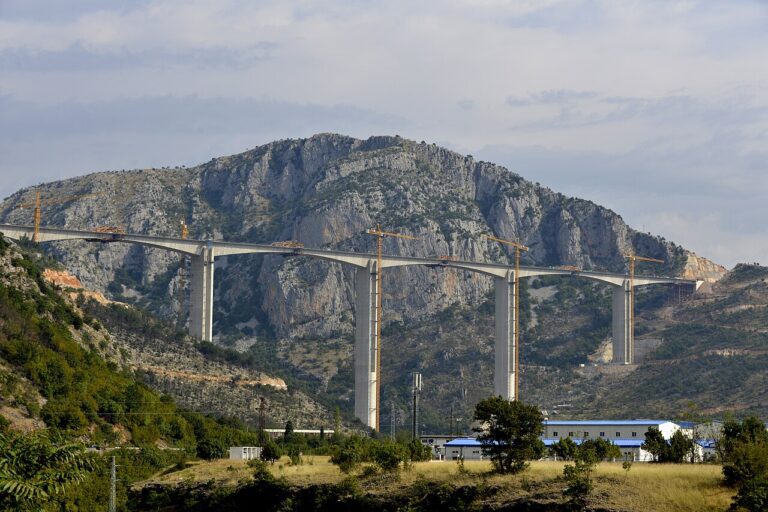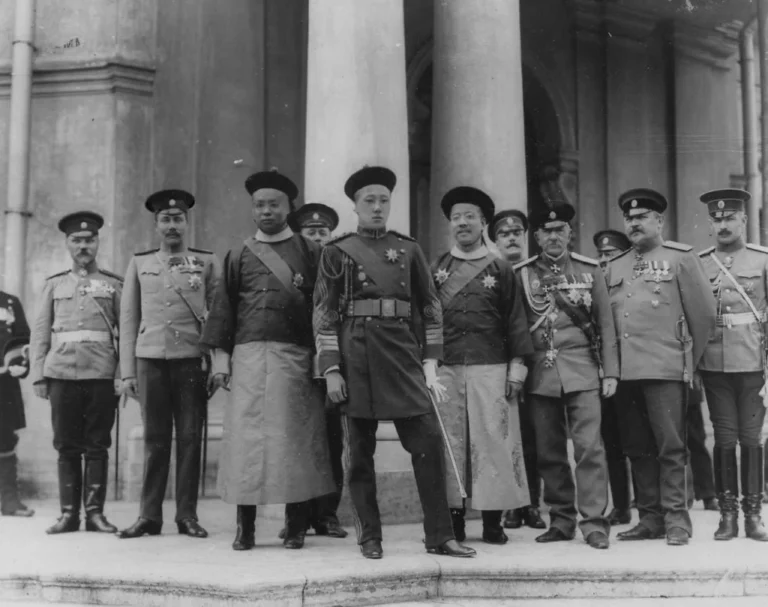
On December 1, the mayor of Bogotá, Claudia Lopez, sat down with representatives of the Chinese pharmaceutical company Walvax Biotechnology for talks about setting up a joint operation to produce vaccines in the Colombian capital. Alejandro Gómez, the country’s Health Secretary, also attended the meeting to ensure the transfer of technology for the local production of COVID-19 vaccines, as well as other drugs and medications.
This meeting, however, was not an isolated event. Encounters between Chinese pharmaceuticals and government representatives across Latin America have been taking place throughout 2021.
In August, Colombia’s Health Minister and Sinovac’s vice president signed a memorandum of understanding which lays out a two-year plan to establish a public-private partnership on vaccine research and setting up a manufacturing center in the country. In Chile, Sinovac is constructing a fill & finish vaccine facility capable of producing 60 million doses per year; the plant will start operating as early as the first semester of 2022. Sinovac also set up a joint production partnership in São Paulo, Brazil, with the state-owned Instituto Butantã back in February. Sinopharm will be producing vaccines in Argentina.
And the list goes on.
Going Out of Health Diplomacy
What resembles a kind of Going Out Policy of China’s pharmaceutical industry is but one aspect of a state-driven effort to make the best of a dire situation affecting the entire world.
In all the aforementioned negotiations, the corresponding Chinese embassy was involved.
In Latin America, Chinese state media – in both Spanish and Portuguese – thoroughly push a concise narrative about Chinese solidarity with the Global South, highlighting sales and donations of personal protective equipment (PPE) and vaccines all around the globe. At one point, Didi Chuxing, the Chinese equivalent of Uber, was offering bonuses to the users of the app when taking a ride to get vaccinated in Mexico, Colombia, and Chile. Online, the Twitter accounts of ambassadors and consuls have also served to amplify the curated message.
Overall, Latin America has been an important point of focus for China. Outside the Asia Pacific, Latin America has been the largest benefactor of Chinese vaccines. Of the 1.58 million Chinese vaccines sold globally, approximately 388 million have gone to Latin America. Even Paraguay, which maintains diplomatic relations with Taiwan, received Sinovac vaccines through donations from Chile and Colombia. For comparison, Africa, a region with twice the population and over three times more countries than Latin America, has only been able to buy 136 million vaccines from China. With many Chinese pharmaceuticals setting up shop and joint production sites in the region, the numbers are likely to skyrocket into 2022.
While general media which is less attuned to these issues can be forgiven, to a degree, for unintentionally blurring the lines between donations and purchases – Chinese media are clearly obfuscating this distinction deliberately. The end result is exactly that which these obfuscation efforts sought after, with Latin American media generally failing to communicate the fact that most of the Chinese vaccines distributed in Latin America have been bought, not donated in solidarity.
In fact, thus far only three million doses have been donated by Beijing. The United States, on the other hand, has donated 40 million vaccines to the region since Joe Biden assumed the presidency.
To be sure, timing is very much worth noting in this comparison. The US contributions, while highly appreciated throughout the region, might have arrived too late.
Despite the stark difference in donations, it was not the United States – nor any Western country for that matter – but China that was the only country with the capacity and willingness to sell masks, medical supplies, and vaccines throughout the first year of the pandemic. Russia made a futile attempt to mirror China’s approach at one stage but failed both in production capacity and diplomatic outreach.
For their part, Latin American governments struggling with the early outbreaks were not considering geopolitics as a primary concern. Instead, they were feverishly seeking PPE equipment and vaccines from whoever could provide them. In this case, China was the only country to answer the call. Odds are this will have a positive impact on Sino-Latin American relations and how China is perceived in the region.
Addressing the North-South Divide
China’s continued international outreach amidst the pandemic should serve as a wake-up call for the Global North.
Opportunities for investment and development in the Global South, and particularly in Latin America, abound. In truth, there is nothing innovative about what Chinese pharmaceuticals have been doing in the region. Local governments need to find long-term solutions to the pandemic and there is a vacuum in the market. As such, Chinese companies are eager to fill the void. The same can be said about 5G technology, green industries, and a host of other emerging battleground issues between China and its Western strategic competitors.
The Chinese government is clearly exploiting the North-South divide to its advantage. For instance, while many outspoken US politicians focus on highlighting the problems in Latin America and what they represent for the United States – illegal drug production, migration issues, political instability – Chinese officials only talk about the opportunities the region can offer.
This is not to say that these issues do not represent a genuine problem for the US, it is to say they are beside the point.
Whether one considers the Chinese official narrative about South-South cooperation and “win-win” scenarios genuine or not is also irrelevant. Even if China is being entirely self-interested in its actions, it is a breath of fresh air for Latin American countries being treated as lands of opportunity, especially if the rhetoric is backed by investment in the region.
Criticizing Latin America for its growing engagement with China will only backfire. This point was driven home by Mia Amor Motley, Barbados’ new Prime Minister, in an interview back in August with the BBC.
“The Chinese hold a large percentage of assets within the United States of America, and a large amount of their treasuries as well,” noted the Prime Minister. “To focus on the Caribbean or Africa with China, without recognizing the role that China is playing in Europe or the North Atlantic countries is a bit disingenuous, and really reflects more that we are seen as pawns regrettably, rather than countries with equal capacity to determine our destiny and to be part and parcel of that global conversation to fight global issues of the day like climate change and the pandemic.”
Indeed, developing countries want to become developed countries, and if engaging with China will help them get there, they will do so without hesitation. This will inevitably lead to less international criticism about China’s human rights violations and other coercive policies. After all, developing countries far outnumber developed ones, and the more these countries depend on China, the less they will be willing (or able) to criticize it.
When it comes to Latin America, the region has strong historical and cultural ties with the United States and the West in general. While autocracies like Venezuela, Cuba, and Nicaragua do exist, by and large, Latin Americans cherish democratic values and wish to live in free societies. There is a strong foundation on which to build even greater economic and political ties, compared to China, that had to start from scratch. Nonetheless, as the pandemic has shown, Latin American governments will be pragmatic when addressing their needs.
At the heels of the Summit of Democracy, an important lesson from the last two years should be drawn in Western capitals: countering Chinese influence has to do as much with defending democratic norms and values as with bridging the North-South economic and technological gap.
Written by
Parsifal D’Sola Alvarado
pdsolaParsifal D'Sola Alvarado is the founder and CEO of the Andrés Bello Foundation – China Latin American Research Center and Chinese foreign policy analyst focused on Sino-Venezuelan relations.


